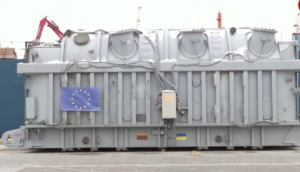
Lithuanian state-owned AB Energijos skirstymo operatorius, which operates the country’s distribution networks, will transfer another batch of equipment to Ukraine for the needs of the energy sector.
“Under the donation agreement, Ukraine will receive more than 200 power transformers of various capacities (…) The humanitarian aid is expected to arrive before the start of the heating season,” the Ukrainian Ministry of Energy said on Wednesday.
The equipment will be transported through the humanitarian aid and civil protection mechanism, which is funded and coordinated by the European Commission (ECHO).
“The transformers are critically needed for the rapid restoration of distribution networks damaged by Russian attacks, as well as to ensure a stable power supply to consumers in wartime,” said Energy Minister Svitlana Grinchuk, whose words are quoted in the statement.
The ministry explained that in order to respond quickly to enemy strikes and carry out operational repairs, it is necessary to have sufficient reserves of backup equipment. To this end, the Ministry of Energy has initiated the creation of a National Strategic Reserve of Power Transformers, which is being formed with the help of international partners, among others.
Since the start of the full-scale invasion by the Russian Federation, Ukraine has received 324 humanitarian shipments of energy equipment from Lithuania, with a total weight of 5,247 tons.
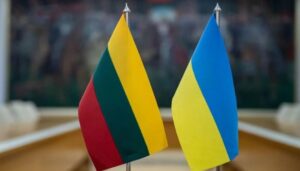
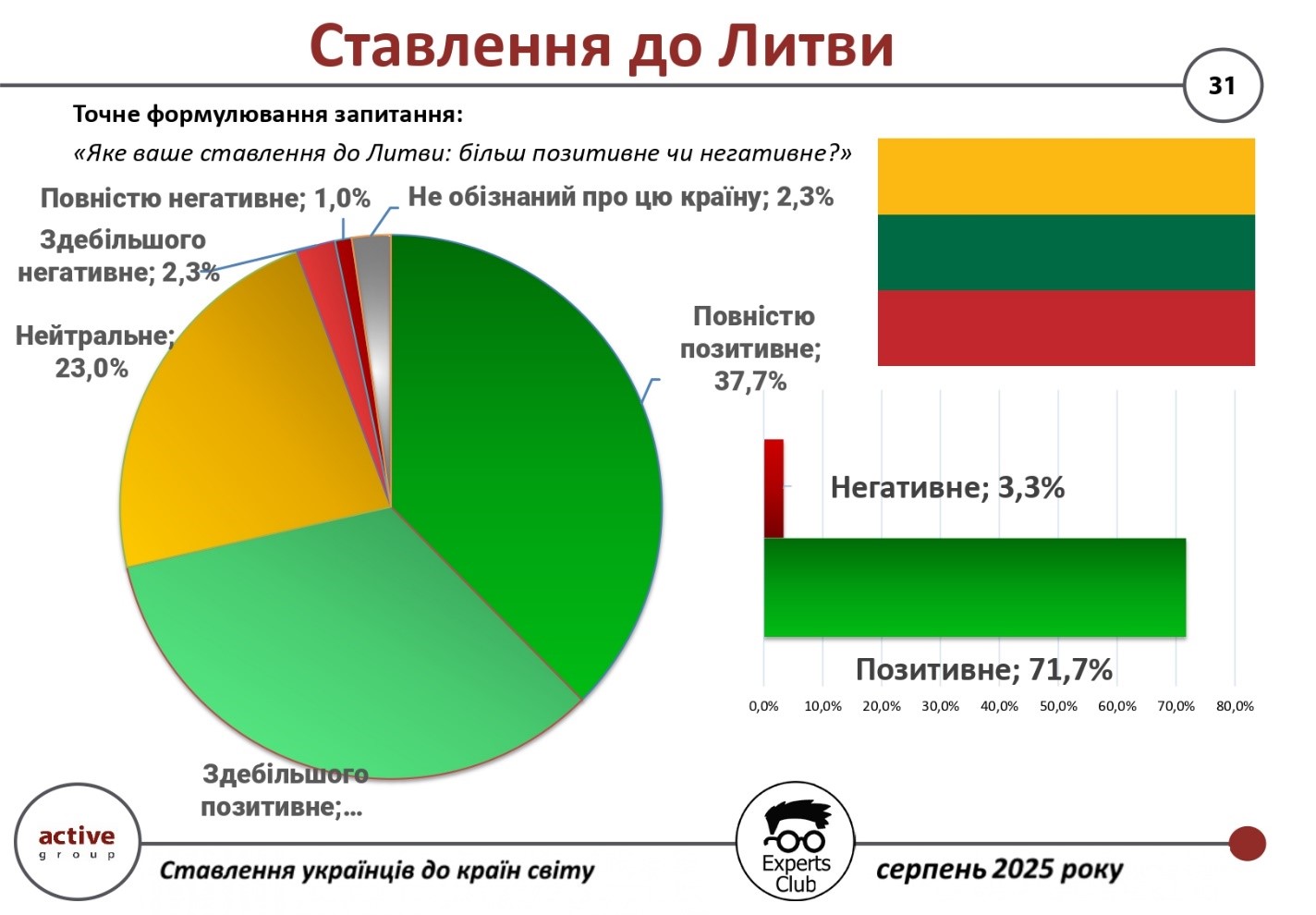
Lithuania remains one of the most positively perceived countries among Ukrainian citizens. This is evidenced by the results of an all-Ukrainian sociological survey conducted by Active Group in cooperation with the Experts Club information and analytical center in August 2025.
According to the survey, 71.7% of Ukrainian citizens have a positive attitude towards Lithuania (34.0% – mostly positive, 37.7% – completely positive). Only 3.3% of respondents expressed a negative attitude (2.3% – mostly negative, 1.0% – completely negative). At the same time, 23.0% of Ukrainians remain neutral, and 2.3% admitted that they do not have enough information about this country.
“For Ukrainians, Lithuania is a symbol of true friendship and unconditional support. The high level of positive assessments is the result of active political, military and humanitarian assistance from Vilnius during the war,” said Oleksandr Poznyi, co-founder of Active Group.
In turn, Maksym Urakin, founder of Experts Club, emphasized the economic component of relations between the two countries:
“In the first half of 2025, trade between Ukraine and Lithuania exceeded $988 million. At the same time, Ukrainian exports amounted to almost $348 million, while imports from Lithuania reached more than $640 million. The negative balance of about $293 million indicates Ukraine’s dependence on Lithuanian supplies,” he emphasized.
The survey was part of a broader program of research on international sympathies and antipathies of Ukrainians in the context of modern geopolitics.
The full video can be viewed here:
https://www.youtube.com/watch?v=YgC9TPnMoMI&t
You can subscribe to the Experts Club YouTube channel here:
https://www.youtube.com/@ExpertsClub
ACTIVE GROUP, DIPLOMACY, EXPERTS CLUB, LITHUANIA, Poznyi, SOCIOLOGY, TRADE, URAKIN
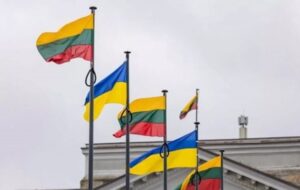
The production of Ukrainian weapons will be organized in Lithuania, according to an agreement reached at a meeting between the defense ministers of the two countries, the Lithuanian Defense Ministry’s press service reported on Tuesday.
“During the meeting between Lithuanian Minister of National Defense Dovilė Šakalenė and Ukrainian Minister of Defense Denys Shmyhal, a bilateral Protocol of Intent on the production of Ukrainian weapons in Lithuania was signed, and the types of weapons to be produced and further steps were discussed,” the ministry said in a statement on its website.
It is noted that the document “provides for joint production of defense industry products, technology transfer, project development, and localization of production in Lithuania.”
“This will pave the way for long-term partnership, strengthening collective European security, and creating sustainable supply chains,” the Lithuanian Ministry of Defense said.
According to Šakalėnė, Lithuania remains firmly committed to further supporting Ukraine. According to the minister, “in the coming years, it is planned to allocate more than EUR 200 million to support Ukraine for projects related to armaments, anti-drone systems, demining, rehabilitation, training, and support for Ukraine’s defense industry.” The Lithuanian Defense Minister also announced in Kyiv that Lithuania intends to contribute up to EUR 30 million to the PURL (Prioritized Ukraine Requirements List) initiative.
The minister also met with the leadership of the Ukrainian Air Force and air defense experts to discuss emerging challenges, lessons learned, and innovations in the field of air defense.
“We discussed Ukraine’s latest decisions in response to the changing situation with air threats and technological innovations. I want to ensure the most effective cooperation possible in strengthening our air defense and responding to the changing technologies and methods used by Russia. We agreed to hold regular expert consultations on the application of practical experience to strengthen our air defense,” Shakalene said.
According to her, “it is extremely important to strengthen airspace surveillance in order to detect Russian drones heading for Belarus as early as possible, which may subsequently violate Lithuanian airspace. To this end, it was agreed to exchange information between representatives of our air forces.”
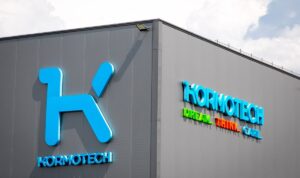
Leading Ukrainian pet food manufacturer Kormotech has started construction of a new plant in Lithuania, in which it will invest EUR60 million, of which EUR40 million is provided by the European Bank for Reconstruction and Development (EBRD), according to Vitaliy Koval, Minister of Agrarian Policy and Food.
“I took part in the ceremony of laying the capsule for the expansion of the Kormotech plant. This is the largest Ukrainian producer of animal feed, which not only conquers the European market but also continues to scale thanks to its powerful entrepreneurial energy. Today, it is important for Ukrainian business to develop its presence in European markets without losing momentum,” he wrote on Telegram.
According to the minister, Kormotech is expanding its existing facilities in Lithuania, where it will create 200 new jobs to complement the team of 170 Ukrainian and Lithuanian specialists and the development of related industries. In addition, the company’s products in this country will have some Ukrainian components.
“One of our priorities in the Ministry of Agrarian Policy is to open new markets and expand existing ones. I am confident that Kormotech’s production facilities will enable other Ukrainian companies to enter the European market or increase their presence there,” Koval said and thanked the Lithuanian partners for supporting Ukrainian entrepreneurs who are becoming part of the European economy.
Kormotech is a global family-owned company with Ukrainian roots that has been producing cat and dog food under the Optimeal, Club 4 Paws, Woof! and Meow! brands since 2003. The company has production facilities in Ukraine and the EU, with a product range of over 650 items. Its focus on exports and geographical diversification helps it withstand the impact of Russia’s war against Ukraine.
In 2023, Kormotech’s turnover increased by 22.5% to $152 million from $124 million in 2022. The ratio of sales abroad and in Ukraine in tons is now 31% to 69%, respectively (in 2022 it was 28% to 72% in Ukraine).
Kormotech brands grew most dynamically in the markets of Romania (+35%), Poland (+11%) and Moldova (+11%).
Kormotech is a leader in Ukraine, one of the world’s top 50 pet food producers and one of the top 21 most dynamic pet food brands. The ultimate beneficiaries of Kormotech are Olena and Rostyslav Vovk.
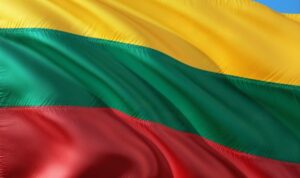
The former head of the Patronage Service of the Ministry of Foreign Affairs of Ukraine, Olga Nikitchenko, has been appointed Ambassador of Ukraine to Lithuania.
“To appoint Olha Nikitchenko as Ambassador Extraordinary and Plenipotentiary of Ukraine to the Republic of Lithuania,” reads the text of President of Ukraine Volodymyr Zelenskyy’s Decree No. 875/2024 of December 21, published on the website of the Ukrainian President on Saturday.